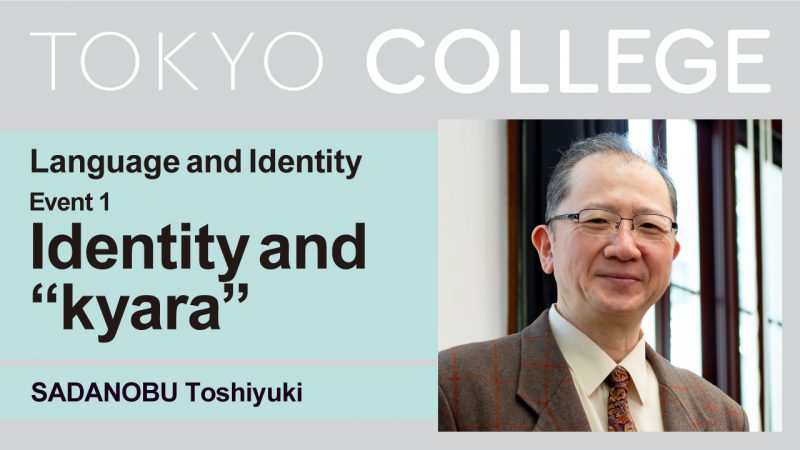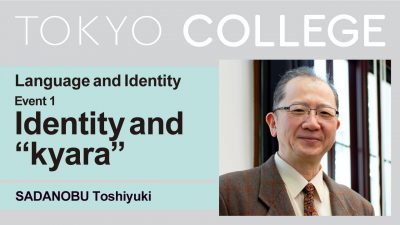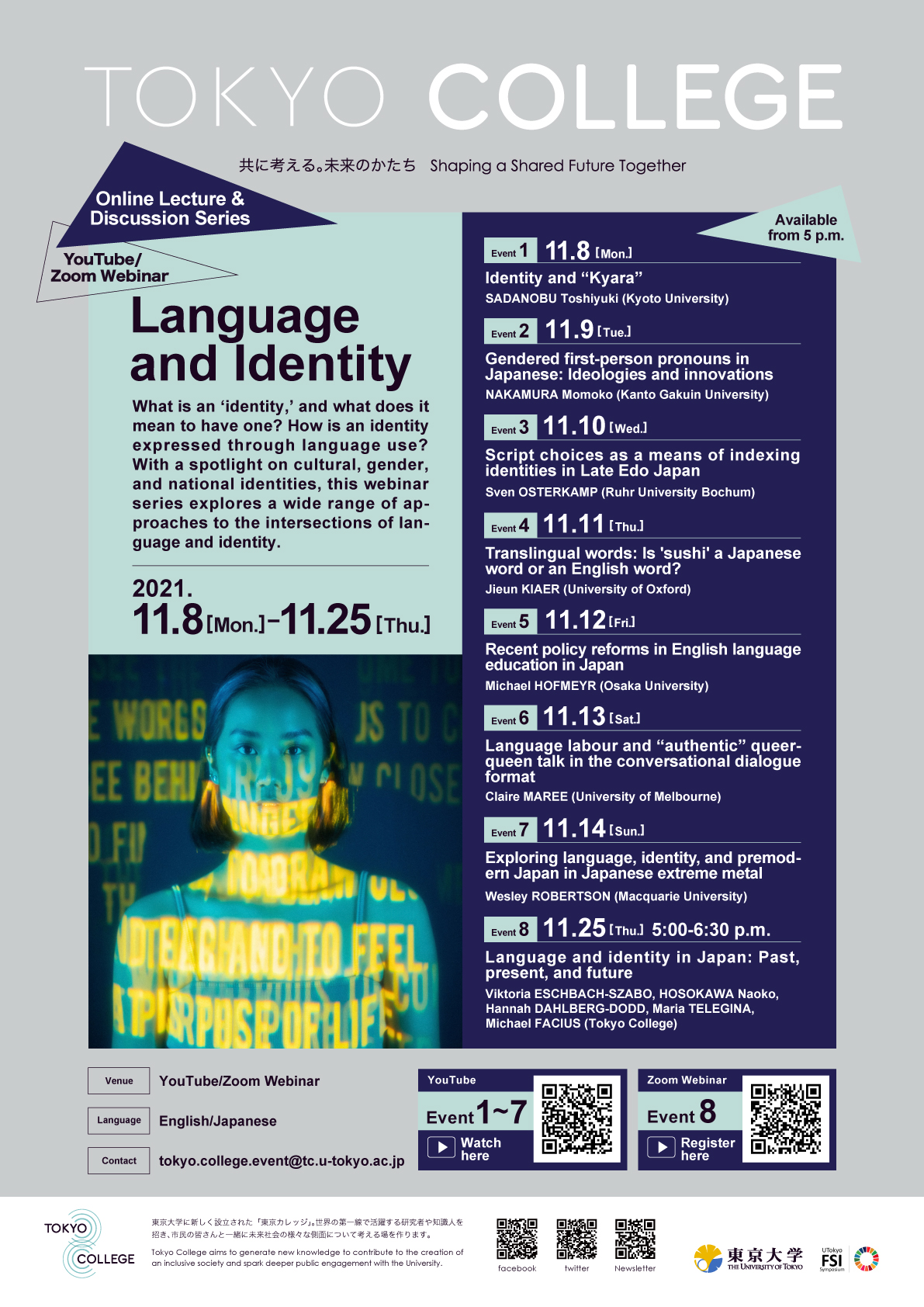Language and Identity Series Session 1: “Identity and ‘Kyara'”

| Date(s) | Monday, 8 November 2021 (available from 17:00 JST) |
|---|---|
| Venue | |
| Language | English (Japanese simultaneous interpretation available) |
| Abstract |
In this talk, Prof. SADANOBU Toshiyuki sheds light on a hidden connection between language and identity by focusing on “kyara,” a concept that came into being in Japan at the end of the 20th century. Originating from the English word “character,” the term “kyara” has taken on a meaning of its own, particularly among young people, as a way to refer to an aspect of the self that changes inadvertently according to the situation.
Since its inception, kyara have come to be viewed as necessary for the analysis of Japanese society, with some researchers even asserting that what is needed by the people is no longer an unattainable ego-identity, but rather a kyara, a disintegrated, pluralistic self. Though researchers are vocal in their defense of young people for the willful performance of kyara, this does not seem to ease the worries of those young people concerned with unintentional changes of their kyara.
This type of misunderstanding is not unique to the youth; we are all infected with a kind of intentionalism. It is common to believe in a static view of human beings, such that while people may intentionally change styles with circumstances, human beings themselves are largely stable and unchanging. It is also typical to take an instrumentalist view of language whereby human beings use language only as an instrument, and that they themselves are unaffected by the language they use. Through an analysis of literary works, internet posts, and questionnaire survey results, this presentation shows that 1) human beings can change inadvertently when analyzed through the lens of kyara, and 2) language can trigger a change of kyara. These results demonstrate the necessity of an alternative framework for understanding speech acts that begins with Pierre Bourdieu’s concept of “habitus” in addition to “speaker intention.” |
| Program |
Speaker: SADANOBU Toshiyuki (Professor, Graduate School of Letters, Kyoto University)
Commentator: Hannah DAHLBERG-DODD (Project Researcher, Tokyo College)
Moderator: Viktoria ESCHBACH-SZABO (Professor of Japanese Studies, University of Tübingen / Invited Professor, Tokyo College, University of Tokyo) |
| Organized by | Tokyo College, The University of Tokyo |
| Contact | tokyo.college.event@tc.u-tokyo.ac.jp |
















